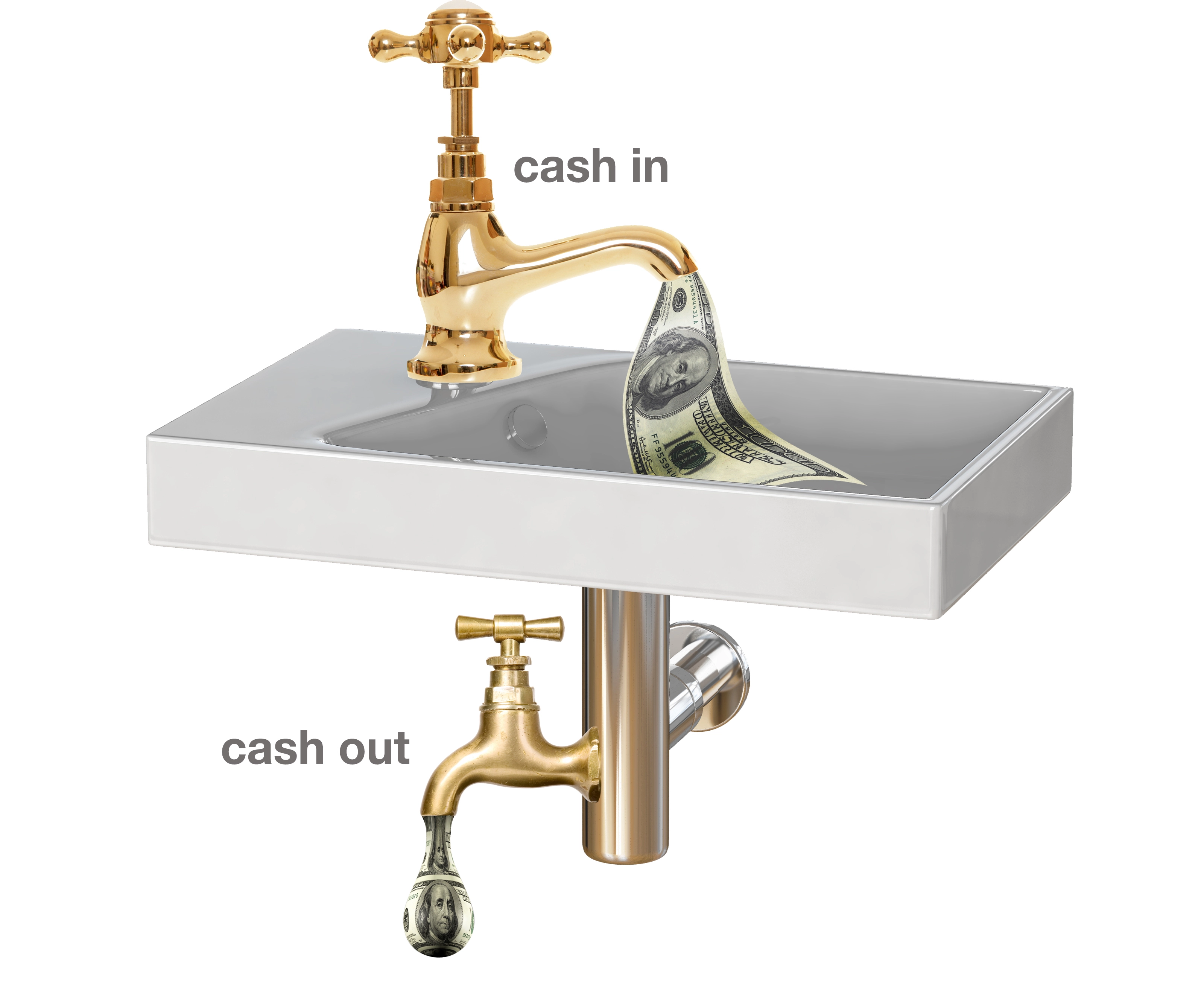Put a process in place to keep the honest employees honest
Employee embezzlement is one of the most sickening things I’ve ever uncovered working with contractors for the past 27 years. Most times it happens because someone is under a huge emotional strain and they aren’t thinking straight. They make stupid choices they never would if they were thinking rationally.
If you don’t have systems in place, it’s easy for a stressed out bookkeeper or stressed out employee to get tempted. Under normal circumstances, they’d never do something unethical or immoral, however, temptation may lead them to try. Once they’re not caught, the second time is easier than the first; and the third time is even easier than that. Before you know it, they’ve taken thousands of dollars in cash or materials.
“I’d trust my bookkeeper with my life,” is a statement I’ve heard over and over again from business owners and it makes me cringe. I know many “trusted bookkeepers” who’ve been embezzling small, almost unnoticeable amounts for 10, 15 or more years before they were caught. Those little sums add up to thousands of your hard earned dollars that they’ve taken.
The job of a good embezzler is to become the trusted bookkeeper.
No one wants to believe one of their employees is stealing. It’s discomforting and shocking when you discover it (it’s not fun for me to tell owners, either). The next step is to confront that person (or people) and demand your money back, definitely fire them and decide whether or not you’re going to prosecute them.
There are simple procedures you can put in place so when one of your employees gets stressed out because of a life situation, he or she is not tempted to do something unethical and morally wrong.
The first and most critical procedure is to send your bank statements to your home address. This means all bank communications come to your home, not your business.
Look at them. Go through the checks every month. You’ll learn a lot. In addition, you’ll learn about checks that have bounced, late loan payments and be the first to get the bank correspondence concerning your hard earned money.
This is the first line of defense in making sure you keep the honest people honest when they’re dealing with your money.
It takes no more than 15 minutes to go through your bank statement.
- Look for names of businesses that are close (i.e.: ABC Inc and ABC Company) and question why checks were written to two companies with similar names?
- Look at the signatures. Do they look right? Do you remember signing that check?
- Look at the amounts. Do the amounts seem right?
Ask questions if something doesn’t look right. This sends a message to your bookkeeper that you’re watching.
Of course, your bookkeeper isn’t the only one who can embezzle.
A contractor I worked with saw a check written to an auto repair shop for $545. He didn’t think it looked right, so the next morning he brought the check to his bookkeeper. She pulled the back up and saw the original check was written for $45. He went to the bank with the cancelled check and back up (purchase order, invoice from the vendor and check stub). The bank credited his account for the $500 and went after the vendor.
Even if you get your bank statement at your office and it’s unopened, the envelope can still be opened “by mistake” or you may not get notices of bounced checks, late loan payments and other bank correspondence about your account.
The second thing you should never do is to accept excuses from your bookkeeper. If your bookkeeper always has an excuse about why the financial statements are wrong or late, take a hard look at the proficiency of your bookkeeper. That person may have reasons for mistakes because he or she is hiding embezzlement. Not getting an accurate, timely financial statement and not balancing the checkbook are the two greatest warning signs that something is amiss.
Good bookkeepers know the financial statements must be in your hands by the 10th or, at the latest, the 15th of the month. If this isn’t happening, you need to get someone who can accomplish that.
Good bookkeepers are mortified when someone finds a mistake they’ve made. They pride themselves on being accurate 100 percent of the time. Good bookkeepers welcome oversight. They want someone looking over their shoulder to make sure the accounts are in order and everything is accurate.
One of your greatest hints that something is wrong happens when a bookkeeper fights against a consultant or CPA coming in to the company to review financial practices and financial statements.
If you aren’t having your bank statements sent to your home, call your banker now and make the change. If your bookkeeper always has an excuse, see whether he or she actually knows bookkeeping (email me for a copy of my bookkeeper test). If he or she does know bookkeeping, then start looking for embezzlement.
Next month, I’ll show you some places to look.
 Ruth King is president of HVAC Channel TV and holds a Class II (unrestricted) contractors license in Georgia. She has more than 25 years of experience in the HVACR industry, working with contractors, distributors and manufacturers to help grow their companies and make them profitable. Ruth has authored two books: The Ugly Truth About Small Business and The Ugly Truth About Managing People. You can contact Ruth at ruthking@hvacchannel.tv, or call 770-729-0258.
Ruth King is president of HVAC Channel TV and holds a Class II (unrestricted) contractors license in Georgia. She has more than 25 years of experience in the HVACR industry, working with contractors, distributors and manufacturers to help grow their companies and make them profitable. Ruth has authored two books: The Ugly Truth About Small Business and The Ugly Truth About Managing People. You can contact Ruth at ruthking@hvacchannel.tv, or call 770-729-0258.

 Ruth King is president of HVAC Channel TV and holds a Class II (unrestricted) contractors license in Georgia. She has more than 25 years of experience in the HVACR industry, working with contractors, distributors and manufacturers to help grow their companies and make them profitable. Ruth has authored two books: The Ugly Truth About Small Business and The Ugly Truth About Managing People. You can contact Ruth at ruthking@hvacchannel.tv, or call 770-729-0258.
Ruth King is president of HVAC Channel TV and holds a Class II (unrestricted) contractors license in Georgia. She has more than 25 years of experience in the HVACR industry, working with contractors, distributors and manufacturers to help grow their companies and make them profitable. Ruth has authored two books: The Ugly Truth About Small Business and The Ugly Truth About Managing People. You can contact Ruth at ruthking@hvacchannel.tv, or call 770-729-0258.



